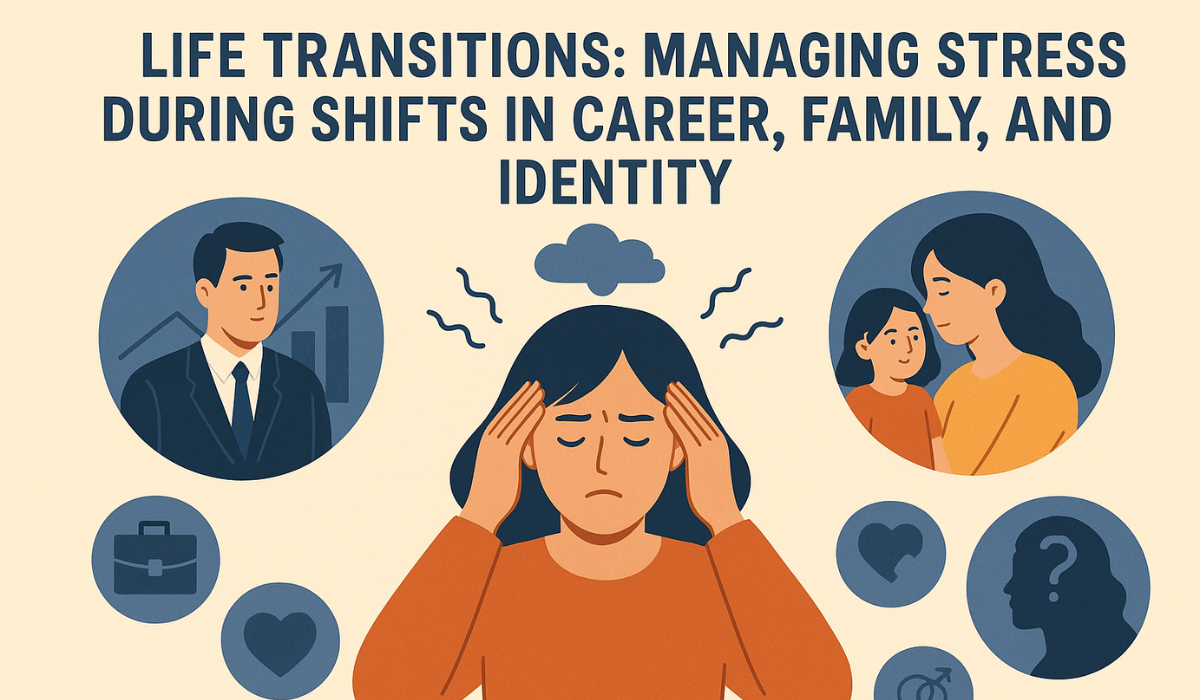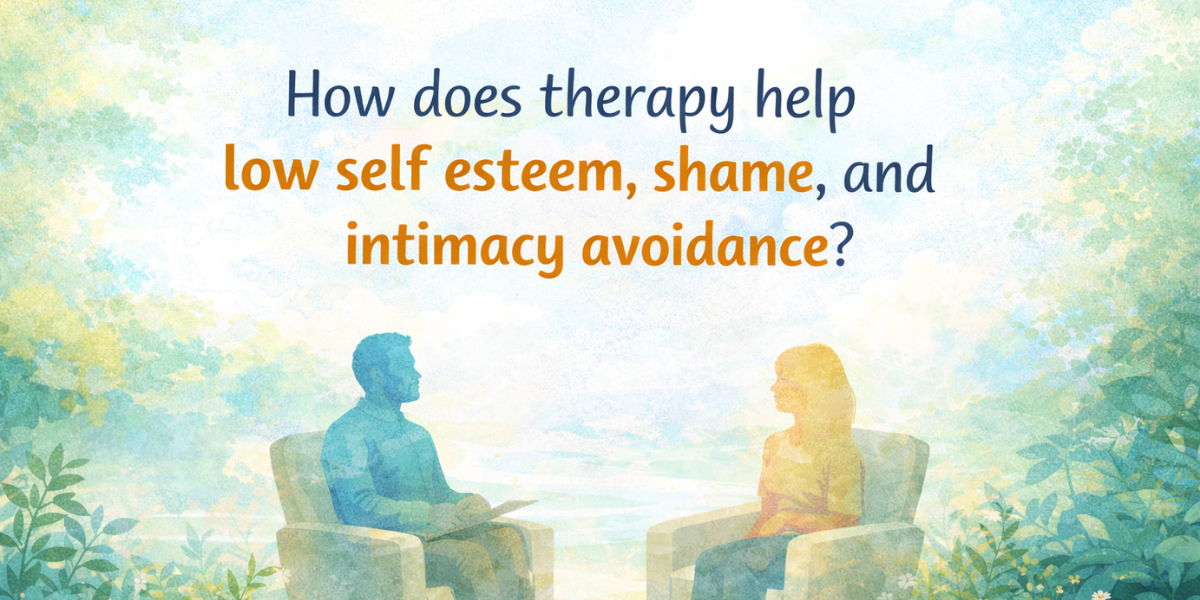Life never stays the same for long. Careers evolve, families change, and our sense of self shifts as we move through different stages. These Life Transitions can be both exciting and overwhelming. Sometimes they bring new opportunities, but they also bring stress, uncertainty, and self-doubt. As one therapist once said, “Every ending carries a new beginning, but that in-between space is where most people struggle.”
So, how do we manage the stress that comes with these big changes? Let’s walk through the different types of transitions and explore ways to handle them with more confidence and less worry.
The Nature of Life Transitions
Not all transitions feel the same. Some are planned, like starting a new job, getting married, or moving to a new city. Others come without warning—like losing a loved one, facing a layoff, or dealing with health challenges.
Even positive transitions, such as welcoming a baby or getting promoted, can create stress. Why? Because change disrupts the familiar. It forces us to adapt, and adaptation takes emotional energy.
When you’re in the middle of a transition, it’s normal to feel unsettled. Think of it like crossing a bridge. On one side is the life you knew, and on the other side is the unknown. The middle can feel shaky, but it’s also the place where growth happens.
Career Transitions: Finding Your Balance
Career changes are some of the most stressful shifts people face. Maybe you’ve just graduated, switched industries, or been promoted into a role with more responsibility. Or maybe you’re in an unexpected transition, like losing a job.
With career shifts, stress often comes from pressure. Questions like:
- “Am I good enough for this new role?”
- “What if I fail?”
- “How will this impact my family or finances?”
The key to easing the stress of career transitions is reframing them. Instead of viewing them as threats, try seeing them as opportunities. Remind yourself: “Change doesn’t mean I’m failing; it means I’m growing.”
Practical steps can also help:
- Break goals down. Instead of focusing on the big unknown, set smaller milestones.
- Seek mentorship. Talking with someone who has navigated a similar path can calm your worries.
- Practice self-compassion. You don’t need to have it all figured out right away.
Family Transitions: Holding Space for Change
Families shift constantly. Kids grow up, parents age, and relationships evolve. Sometimes transitions are joyful, like welcoming a baby. Other times they are painful, such as divorce, loss, or empty-nesting.
Family changes often stir up emotions because they touch the deepest parts of who we are. They challenge routines, roles, and expectations. For example, a parent may feel lost when children leave home, or siblings may struggle with caregiving decisions for aging parents.
To manage these transitions, communication is vital. Honest conversations, even when uncomfortable, reduce misunderstandings and help everyone adjust.
Equally important is self-care. You can’t support your family if you’re running on empty. Simple things—like daily walks, journaling, or connecting with a friend—help replenish your energy.
One woman who went through divorce shared: “The hardest part wasn’t the legal paperwork; it was figuring out who I was without the family structure I had for years. Therapy gave me the tools to rebuild my identity.”
Identity Transitions: Redefining Yourself
Some transitions strike at the core of who we are. Retirement, leaving a long-term relationship, or even moving to a new culture can shift your sense of identity. These changes can feel like losing a part of yourself.
During these times, it’s normal to ask, “Who am I now?” or “What role do I play in the world?” Identity transitions can be unsettling, but they are also opportunities to redefine yourself in empowering ways.
Here are a few tips:
- Allow grief. It’s okay to mourn the identity you’ve left behind.
- Stay curious. Ask yourself, “What excites me now?” or “What values guide me today?”
- Experiment. Try new hobbies, join groups, or volunteer. Sometimes exploring new roles helps you find a fresh sense of belonging.
The Role of Therapy in Life Transitions
No matter what kind of transition you’re facing—career, family, or identity—therapy can be a powerful resource. A therapist can help you process emotions, reframe challenges, and discover practical coping strategies.
This is where the secondary keyword fits beautifully: If you’ve wondered how to navigate major life transitions with therapy, the answer often lies in gaining perspective and building resilience.
Therapy provides a safe, non-judgmental space to unpack fears and uncertainties. It can also help you build skills like mindfulness, stress management, and effective communication.
For example:
- In career transitions, therapy can help reduce imposter syndrome and build confidence.
- In family transitions, therapy can guide better communication and boundary-setting.
- In identity transitions, therapy can support self-discovery and acceptance.
Healthy Ways to Manage Stress During Transitions
Here are practical tools to ease the stress of life changes:
- Acknowledge Your Feelings. Pretending you’re fine only makes stress worse. Naming your emotions is the first step to managing them.
- Create Routines. When everything feels uncertain, simple routines like morning walks or bedtime rituals bring stability.
- Connect with Support. Lean on friends, family, or support groups. Connection reminds you that you’re not alone.
- Practice Mindfulness. Breathing exercises, meditation, or journaling help calm your mind.
- Set Realistic Expectations. You don’t need to adapt overnight. Give yourself permission to take it slow.
- Focus on What You Can Control. Transitions often bring things outside your control. Redirect your energy toward what you can influence.
- Celebrate Small Wins. Even little steps forward are worth recognizing.
Stories That Inspire
Hearing how others have navigated transitions can be comforting.
- Career Story: A man who was laid off during an economic downturn shared that it initially felt devastating. But with support and therapy, he discovered a passion for teaching. Today, he describes it as the best shift of his life.
- Family Story: A young mother admitted she felt overwhelmed after the birth of her second child. By creating small daily rituals and seeking help from her partner, she found her rhythm again.
- Identity Story: After retirement, one woman felt invisible. Through volunteering and art classes, she redefined herself and now says, “I may not have the same role, but I’ve discovered new ways to matter.”
These stories remind us that transitions, while stressful, can also open doors to unexpected joy.
Finding Meaning in Change
Transitions are not just disruptions; they are opportunities. They push us to grow, reevaluate, and realign with what matters most. While stress is inevitable, suffering doesn’t have to be permanent.
As one wise saying goes, “We can’t control the waves, but we can learn how to surf.”
Life transitions—whether in career, family, or identity—are those waves. By seeking support, building healthy routines, and giving ourselves compassion, we can ride them with more strength and grace.
Final Thoughts
Change is never easy, but it’s rarely the end of the story. It’s the beginning of something new. When you’re facing a transition, remind yourself that feeling unsettled is normal, but it won’t last forever. With the right tools, support, and mindset, you can move forward with confidence.
And if you’re wondering how to navigate major life transitions with therapy, remember that reaching out for professional help can be one of the bravest and most healing steps you take.
FAQs
What are Life Transitions?
Life Transitions are significant changes that shift the way we live, think, or relate to others. They can include career changes, family adjustments, identity shifts, or even unexpected events like loss or illness. These transitions often bring stress because they disrupt what’s familiar, but they also open opportunities for growth.
Why are Life Transitions so stressful?
Transitions bring uncertainty, and our brains naturally seek stability. Even positive changes, such as a promotion or marriage, can feel stressful because they push us out of our comfort zone. The unknown often triggers worry, self-doubt, or fear, making transitions challenging to navigate.
What are some common types of Life Transitions?
- Career Transitions: Starting a new job, losing a job, or shifting industries.
- Family Transitions: Marriage, divorce, parenting changes, or caring for aging parents.
- Identity Transitions: Retirement, relocation, or redefining yourself after major life changes.
- Each of these comes with its own stressors but also opportunities for personal growth.
How can I manage stress during a big transition?
Managing stress during transitions starts with acknowledging your feelings. Building routines, practicing mindfulness, leaning on support networks, and setting realistic goals can make change feel less overwhelming. Small steps—like daily journaling, walking, or celebrating minor wins—help create stability in the middle of uncertainty.
How do Life Transitions affect family dynamics?
Family transitions often shift roles and responsibilities. For example, becoming a parent, going through divorce, or facing empty-nest syndrome can change how family members relate to each other. Open communication, patience, and self-care are essential for adjusting together in healthy ways.
What role does therapy play in navigating Life Transitions?
Therapy provides a safe, supportive space to process emotions, reduce stress, and find clarity. A therapist can guide you through reframing challenges, building coping strategies, and uncovering strengths you might not realize you have. Many people wonder how to navigate major life transitions with therapy—the answer often lies in gaining perspective, building resilience, and having a professional to walk alongside you during change.
How long does it take to adjust to a major life transition?
There’s no one-size-fits-all answer. Some transitions take weeks, while others may take months or years to fully integrate. The key is to give yourself grace. Healing and adjustment aren’t linear—progress often comes in small steps rather than big leaps.
How can I support a loved one going through a life transition?
The best support often comes from listening without judgment. Offer encouragement, validate their feelings, and check in regularly. Avoid trying to “fix” everything. Sometimes, just being a consistent and compassionate presence can make the biggest difference.





